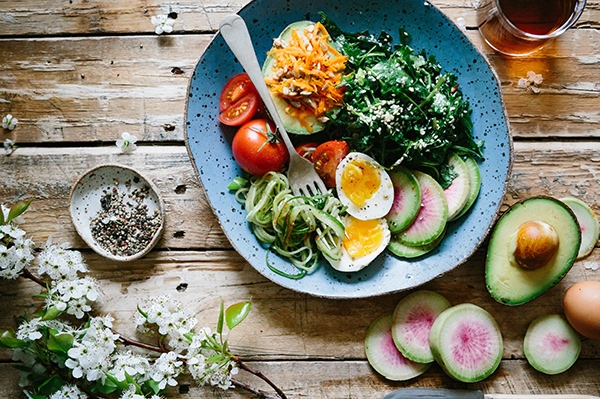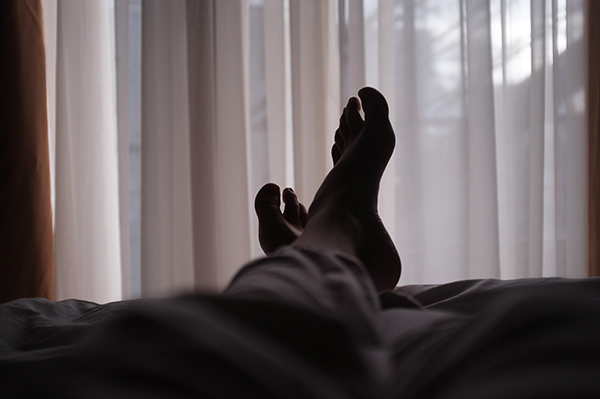1 – Hydrate. Most folks living a city-based western lifestyle spend most of their lives slightly dehydrated – the earliest symptom of dehydration (before thirst) is slight lethargy. Think of your average day. Get up, pee, cup of coffee (or tea), go to work, take a break, pee, cup of coffee (or tea), have lunch, pee, cup of coffee (or tea), take a break, cup of coffee (or tea), head home and unwind with a nice diuretic beer or glass of wine, pee, bed, begin again…
Most of us live constantly in a slightly dehydrated state (getting the majority of our fluid requirements from the carbs that we ingest) and never really fulfilling our potential, feeling vaguely lethargic. Start your day with a pint of water and notice the difference immediately as you will feel a bit more sparky and alert.
2 – Explore on your way to and from work. New experiences make life feel fuller, longer and more enriched. Just as an indigenous person maps their landscape as they look for new food sources, animal tracks and edible plants - make an effort to map your urban landscape. Walk between tube stations so that you can link them up on the surface. Try to take a different way home from work each day. Explore alleyways and back streets; discover shortcuts and patches of green space. Make the effort to disrupt your usual routine. To our ancestors, making predictable patterns got you eaten!
Someone once told me that humans and foxes are the only mammals in the UK that actively looks up – make sure you do. It will help to avoid a slouching ‘tech neck’ posture, so put your phone away and gaze up to enjoy the beautiful Victorian architecture, distant clouds (good for your eye muscles) and the occasional glimpse of nature (from a scruffy pigeon's nest, to a soaring peregrine falcon if you are really lucky).


3 – Go outside (buy an umbrella). Aim to spend as much time as possible outdoors enjoying the elements in all their forms - sun, wind and rain. Leave a bit earlier and walk where you can, take the stairs, get off the bus or tube one stop early. Eat your lunch outside (ideally with friends).
During the summer months wear shorts and t-shirt to expose your skin to the sun (no cream) to manufacture some vitamin D in your dermis in response to the ultra violet rays. Technically a hormone that absorbs calcium in the gut; vitamin D is difficult to absorb in quantity through food alone (which supplies about 10% of our needs) and we need it to maintain healthy, strong bones, so go outdoors.


4 – Eat better. Where possible aim to eat organically and locally sourced. Do your best to use the seasons to diversify your diet, eating fruit, veg and meat as they come into season. If you eat meat, try to include locally sourced seasonal wild game and don’t be afraid to trying some vitamin-rich organ meat. Our ancestors would have eaten nose-to-tail, wasting nothing.
I’m afraid we’re back to bones again, but samples from almost two thousand human skeletons collected (in Europe) from the Palaeolithic period through to last century, has shown that our skeletal systems have become lighter and weaker since we were hunter-gatherers. This is likely due to us walking less and living a much more sedentary lifestyle, but also due to our move to agriculture, where we simplified our diets, removing hundreds of wild plants from our annual / seasonal menu. These wild plants contained lots of phytonutrients that were beneficial to human bones, general health and helped to prevent disease. In the absence of a forager lifestyle, it makes sense to eat as many different types of vegetables and fruits as possible in order to absorb as large a range of micronutrients as possible.


5 – Get quality sleep. There’s an old adage that says, "Invest in your boots and your bed, because if you’re not in one, you’re in the other." Aside from your Vivobarefoots, spend your money on a good comfortable mattress and good quality bedding, as you spend about 1/3 of your life under your duvet! Adhere to regular sleep habits and obey your circadian rhythms to get a good night’s sleep – sleep less in summer and more in winter. Aim to have a quiet, dark room, with the window open and the door ajar to maintain a cool temperature with some airflow; to achieve this you may need to consider earplugs and some blackout material for your windows.


In short; drink more water, explore more… outside, eat better and sleep well – easy!

